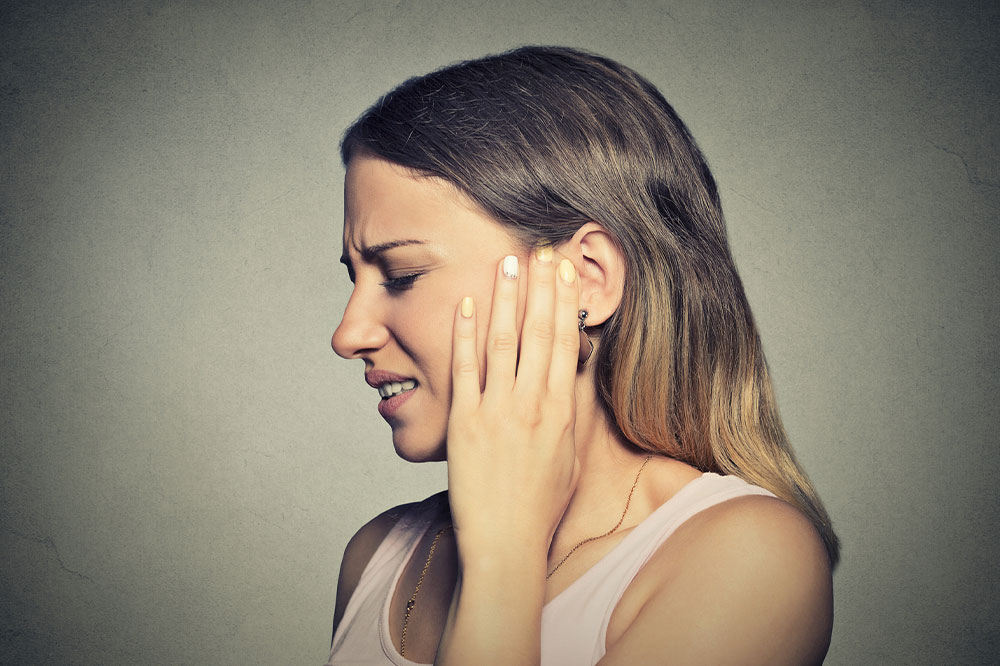
Few effective management options for tinnitus
Our auditory system consists of our ears, the auditory nerve which connects the ear and the brain, and some parts of the brain that process sound for us to hear. A person has tinnitus if they hear soft, low, or high-pitched ringing, clicking, hissing, or buzzing sounds in either one or both ears. Tinnitus cannot be cured in most cases, but many new approaches help reduce or eliminate its symptoms.
Causes of tinnitus
Tinnitus can happen due to many underlying health conditions, external influences like environment, and a few without apparent reasons. The most common causes of tinnitus include:
Ear infections
Wax accumulation
Sinus infections
Meniere’s disease
Brain tumor
Thyroid problems
Cardiovascular diseases
Hormonal changes
Changes in blood flow in the head and neck
Continuous exposure to loud noises
A side effect of pharmacological therapies
People treated for any of the diseases mentioned above are at risk for tinnitus. Soldiers exposed to loud explosions in combat areas, workers in factories and construction sites, and musicians who listen to loud music are also at risk for tinnitus. Tinnitus is a common symptom of hearing loss among seniors.
Treatment of tinnitus
Tinnitus is a recurrent condition, and when it occurs, it can last for up to 5 minutes. There are no recommended pharmacological treatments for tinnitus, but they may be used to treat anxiety, depression, or sleeping disorders caused by tinnitus. It can cause anxiety and depression. Your primary doctor may refer you to an Ear, Nose, and Throat (ENT) specialist and an audiologist who will perform a thorough physical examination and simultaneously assess any impact on hearing. They will do tests to identify the cause of tinnitus, and if there is a disease that causes it, they will refer you to appropriate doctors who can treat those diseases.
Doctors use one or more of the following approaches to treating tinnitus:
Hearing aids
Hearing aids are helpful for people who experience hearing loss along with tinnitus. The aids help control outside noises, improving your hearing and taking less notice of tinnitus.
Sound generators
These are wearable and tabletop devices that help mask tinnitus sounds. Wearable devices fit in your ear and generate a masking sound that can cover up the sounds from tinnitus. Tabletop generators do the same and can be placed near your bed. You can program these devices with sounds from nature, music, or tones that help you sleep or the cover when you experience tinnitus.
Cochlear implants
Cochlear implants help patients with severe hearing loss due to tinnitus. These implants send auditory signals to stimulate the auditory nerve and help them hear outside noise that can drown the tinnitus.
Sound therapy and Audio Logic Tinnitus Management (ATM)
Sound therapy and Audio Logic Tinnitus Management are two approaches used by trained audiologists who use various devices and different types of sounds, known as sound maskers, with the goal of:
Masking the sounds of tinnitus
Distract the patients from tinnitus
Habituate the patient to the sounds and eventually ignore them.
The treatment can go on for many weeks or months until a patient can bear tinnitus without any stress.
Tinnitus retraining therapy (TRT)
TRT uses sound therapy and counseling concepts where patients hear external and tinnitus sounds. They slowly get habituated to the sounds and eventually learn to tolerate them. TRT is a highly customized approach based on each patient’s tolerance to tinnitus sounds.
Cognitive behavioral therapy
Counseling helps patients deal with depression and anxiety that are associated with tinnitus. Therapists train a person with tinnitus to cope with symptoms and teach them to respond to symptoms better so that they pay less attention to the noises.




